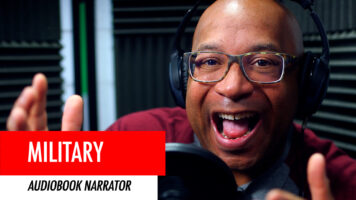

- BOOK ESCAPES ABUSIVE HUSBAND AUDIO BOOK NARRATOR SOFTWARE
- BOOK ESCAPES ABUSIVE HUSBAND AUDIO BOOK NARRATOR PROFESSIONAL
- BOOK ESCAPES ABUSIVE HUSBAND AUDIO BOOK NARRATOR FREE
Record a demo (or a bunch of demos) (Image by Jonathan Velasquez on Unsplash)Ī demo, in the audiobook world, is a 5-10 minute recording given as a sample of your services to authors and publishers considering hiring you.
BOOK ESCAPES ABUSIVE HUSBAND AUDIO BOOK NARRATOR SOFTWARE
We’ve previously written an extensive guide to the various technical details of recording an audiobook, so head that way for advice on optimizing your home studio, selecting the right headphones and microphone, and learning to use recording and editing software to produce flawless audio. But before you get to that point, you’ll need to master the practicalities.
BOOK ESCAPES ABUSIVE HUSBAND AUDIO BOOK NARRATOR PROFESSIONAL
Sure, you might dream of being hired by a ‘Big 5’ publisher, going into the studio and recording audio that gets mixed and produced by professional sound engineers. Once you’ve worked hard to improve your technique, it’s time to turn to the more technical side of things: your tools and portfolio. Having markings in your script means that you can easily scan ahead and adjust how you read the next line.

This involves highlighting different characters’ speech with different colors, making notes about factors that might affect their speech (personality traits, emotions, age, dialect or accent indicators), and gaging the overall tone and mood of the work to determine how you should narrate it. Whether you’re planning to read from paper or from a digital device (the latter might be preferable to avoid recording the sound of rustling pages), you’ll need to study your texts thoroughly before a session in the studio, and mark them up to aid your delivery. Learn to mark up a script There’s no wrong way to mark up a script, so highlight and emphasize whatever you feel helps your own delivery.
BOOK ESCAPES ABUSIVE HUSBAND AUDIO BOOK NARRATOR FREE
💡A free resource to start with is Patrick Fraley’s lesson on breathing for audiobook narrators on YouTube. Competition aside, you should always strive to improve your acting and producing skills - and there’s plenty of free advice, tips, and even classes on the internet (not to mention the paid services of experienced voice actor coaches, if you can afford them). Don’t let that intimidate you: audiobooks are their own art, with ‘radio voice’ often proving too boisterous and ‘drama voice’ too uneven for the format. Many of your competitors will be trained actors with drama school experience, or professionals who have worked in radio or advertising. 📚 Need audiobook recommendations? We’ve got a list of the best audiobooks over on our Discovery blog, along with plenty of other book recommendations! Take a free class or paid course Pay particular attention to pacing - something many beginners overlook! Alternatively, you can compare a professionally recorded audiobook, like the ones freely available on Spotify, to the volunteer-read Librivox equivalent.

Make note of the things you do differently, and try to understand how you can improve. Read out a paragraph yourself, and then compare it to the professional audiobook.

This may be something you’ve been working on subliminally if you’re an avid audiobook listener, but for practice’s sake, it’s worth listening carefully to an audiobook narrated by a professional you admire, with the print book in hand. Juliet Stevenson's reading from Virginia Woolf's A Room of One's Own is a masterclass in narrating


 0 kommentar(er)
0 kommentar(er)
